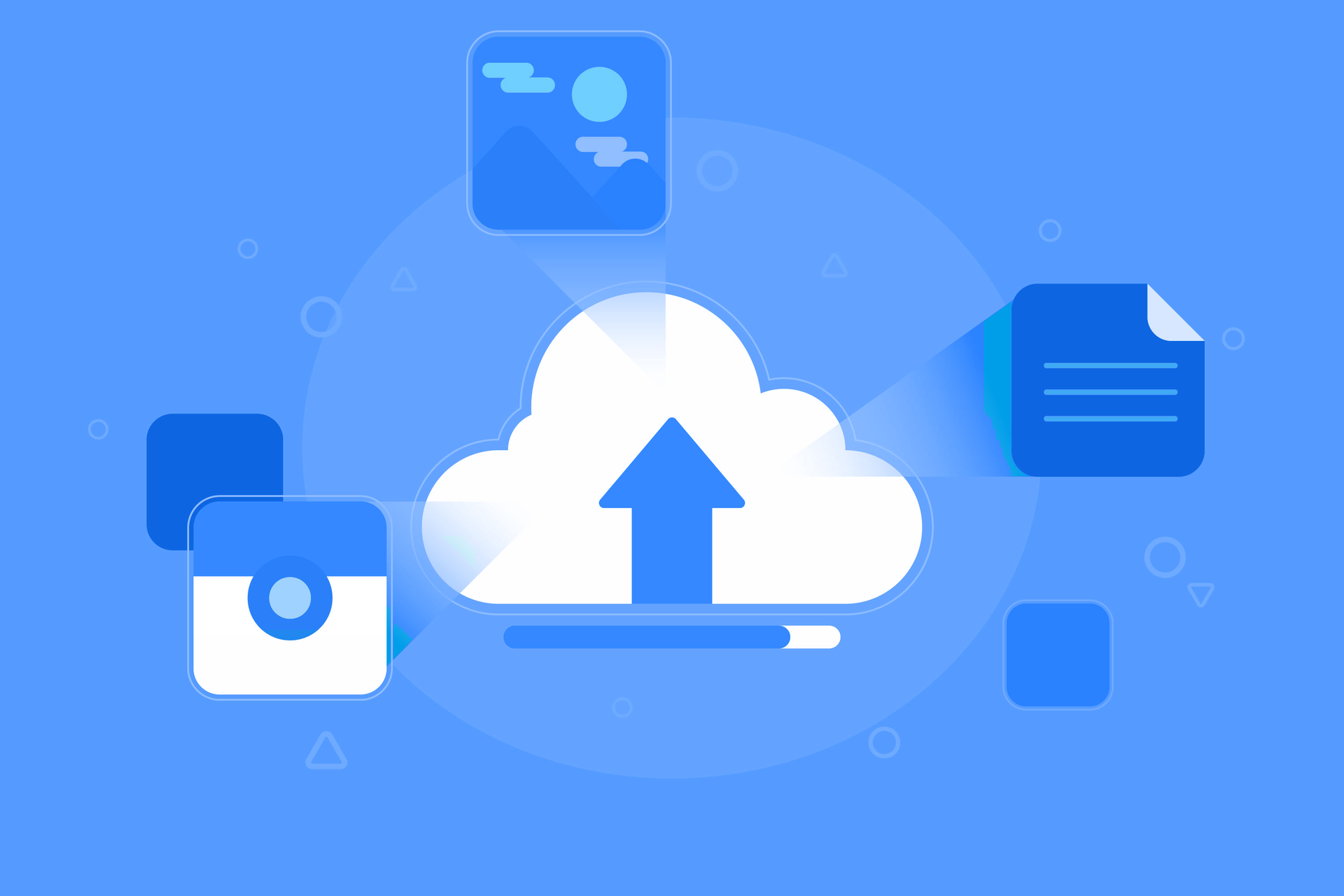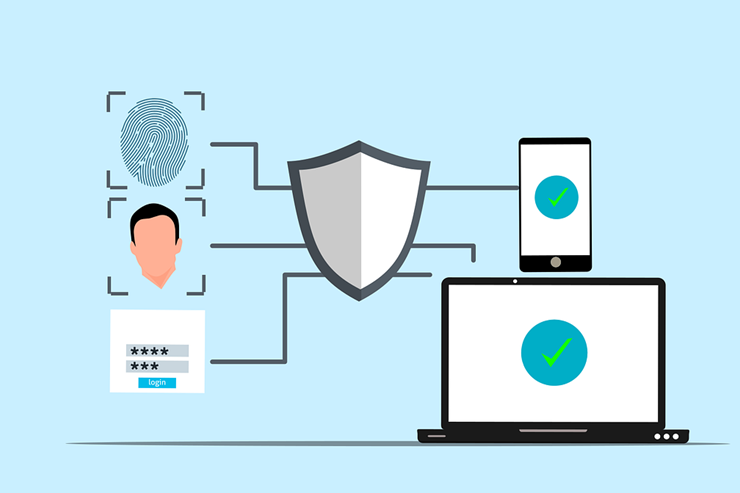How can ERP improve your business?
September 28, 2017

Small- and medium-sized businesses constantly struggle with different areas of business, whether it’s accounting, inventory, or strategic planning. This is because SMBs often lack the tools to manage these systems efficiently. However, enterprise resource planning (ERP) software can come in handy. If you’re looking to improve business performance, read on.
What is ERP?
Simply put, ERP software integrates various aspects of your business -- from accounting and human resources to production and sales -- into one system where you can easily manage tasks and process data.
The key feature of any ERP system is a central database that gives users a complete summary of financials, sales figures, and other important metrics. In practice, this means employees in different departments can rely on the same information without your having to reenter that information into a different database.
But simplicity is only one of many benefits.
Enhanced reporting
With business information consolidated in one location, you can generate comprehensive reports and analytics at any time.
One of the most popular uses for this feature is financial reporting. General ledgers, revenue recognition, and tax reporting functionality are built into most ERP software solutions, allowing you to balance the books in seconds.
In addition to this, ERP systems come equipped with business intelligence features that provide intuitive analysis into your operations and forecast the growth of your company. This helps you and other executives find fresh business opportunities and make better-informed decisions.
Better customer service
Access to up-to-date business information also makes it easy to provide high-quality customer service. Suppose a customer inquired whether or not an item was still in stock. Rather than wasting five minutes asking your supply manager, who then checks his or her own records, representatives can access the ERP database to provide the customer with information in half the time.
Simplified compliance
Until recently, most organizations were forced to rely on impractical spreadsheets and manual processes to meet compliance requirements; but with ERP, you can easily and consistently achieve this.
ERP software generally comes with audit functionality, giving you full visibility into your processes. What’s more, it provides templates and guidance to help you meet regulations within your industry, such as the Sarbanes-Oxley Act and the International Financial Reporting Standards.
Streamlined workflow
Another key feature is automation. Repetitive tasks that eat a huge chunk of your time can be eliminated by programming automated workflows. For example, you can set your ERP to instantly reorder materials when stock levels have reached a certain threshold. This ensures that your shop never experiences out-of-stock or overstocked incidents.
You can even assign workflows that route invoices and reimbursements to the right accountant to make sure tasks are handled quickly and efficiently.
Rich integrations
The beauty of ERP software is that you can integrate it with other services to extend its capabilities. If you need to track customer information and sales figures, you can combine it with customer relationship management software or pair it with e-commerce services to streamline web-based purchases.
ERP systems can adapt to your ever-changing needs, which is incredibly valuable for your rapidly growing business. If you need more ideas or solutions that can add value to your business other than ERP, call us today!
Published with permission from TechAdvisory.org. Source.

A slow computer or a frozen screen are the worst things that can ruin your day. You've most likely dealt with outdated technology on multiple occasions if you manage a small business. It may seem cost-effective to extend the life of outdated equipment, but the long-term costs are frequently higher. Due to technological issues like sluggish PCs and antiquated laptops, small businesses lose about 98 hours annually, or 12 working days . This is why it's important to have an IT refresh plan. It helps you stay safe, prevents unplanned malfunctions, and keeps your team operating efficiently. Regardless of whether you outsource managed IT services or handle them in-house, a solid refresh strategy can save time, stress, and money down the line.

Does your small business ever feel like it has too much data? This is a fairly typical occurrence. The way small businesses function has changed as a result of the digital world. In addition to customer emails and backups, we now have an overwhelming amount of data to manage, including financial statements, contracts, logs, and employee records. According to a PR Newswire survey, 72% of company executives say they have stopped making decisions because the information is too overwhelming. All of this data can easily become disorganized if improperly handled. By implementing the appropriate data retention policy, effective IT solutions assist. A strong data retention policy keeps your company compliant, organized, and cost-effective. Here's what should be deleted, what should be kept, and why.

Selecting the best cloud storage solution can be similar to being faced with an endless buffet of options, each one claiming to be the best. A poor choice may result in lost revenue, compromised data, or even a snag in productivity. The stakes are extremely high for small business owners. Regardless of your level of experience, we will guide you through this thorough guide to help you choose a cloud storage solution that is specific to your company's needs.

Cyber threats are a daily reality for small businesses navigating an increasingly digital world; they are not merely an abstract concern. Financial and reputational harm can result from ransomware attacks, phishing scams, or unintentional data leaks. In order to reduce the risks, more businesses are using cyber insurance. Not every cyber insurance plan is made equally. Many business owners think their policy covers them, but they discover (too late) that it has significant gaps. We'll explain exactly what is and isn't covered in this blog post, along with how to pick the best cyber insurance plan for your company.

Have you ever questioned how susceptible your company is to online attacks? Nearly 43% of cyberattacks target small businesses , frequently taking advantage of lax security measures, according to recent reports. Multi-Factor Authentication (MFA) is one of the most underutilized yet powerful ways to safeguard your business. Even with your password, hackers will find it much more difficult to obtain access thanks to this additional security measure. The implementation of Multi-Factor Authentication for your small business is explained in this article. Knowing this will enable you to take an important step toward protecting your data and guaranteeing more robust defense against possible cyberattacks.

Managing a small business requires a lot of multitasking. These hats include operations management, customer service, and maintaining order. AI-powered automation is a solution that can reduce the workload. Small business owners can now automate tasks that were previously done by hand thanks to technological advancements that have made these tools more affordable and accessible than before. There's no need to hire a big staff or spend a fortune. AI can manage a large portion of your hectic workload, allowing you to concentrate on more crucial facets of your company. AI can act as your virtual assistant, increasing productivity and simplifying processes, whether you're a small team manager or a solopreneur. This blog post explores how you can automate everyday tasks and free up your time if you want to learn more about how AI can change your company. We'll demonstrate how to use reasonably priced AI tools to reduce repetitive tasks, save time, and increase business efficiency.

In today's digital world, cyber threats are smarter than ever. Weak passwords or old ways of proving who you are can cost people and businesses money, steal their data, or steal their identities. A strong password is the first thing that will keep hackers out, but it's not the only thing that will work. This guide goes over the basics of strong passwords, two-factor authentication, and the best ways to keep your accounts safe. We'll also talk about new ways to check things and things you should never do.

A sophisticated type of cyberattack known as "password spraying" uses weak passwords to acquire unauthorized access to numerous user accounts. This approach focuses on using a single password or a collection of passwords that are frequently used across multiple accounts. The goal is to circumvent standard security protocols, such as account lockouts. Password-heavy attacks are highly effective because they target people and their password management practices, which are the biggest weakness in cybersecurity. This ar ticle will describe how password spraying operates, address how it differs from other brute-force attacks, and go over how to detect and prevent it. We will also discuss how businesses can defend themselves against these threats and examine real-world examples.

What would happen if tomorrow your company lost all its data? Would your operations come to a complete stop, or would you be able to recover? Data, including communications, financial records, product files, and customer information—is the lifeblood of any small business. However, data security is frequently neglected. After a disaster, 25% of small businesses close within a year, and 40% never reopen , according to the Federal Emergency Management Agency (FEMA). That represents an incredible 65% failure rate because of inadequate preparation. The good news is here. An enterprise budget and a dedicated IT staff are not necessary for disaster data protection. You can create a backup and recovery plan that reduces downtime and provides you with peace of mind if you have the right approach, the appropriate tools, and a little forethought. In this blog post, we will discuss practical and easy-to-follow advice to help you protect your most valuable business asset: your data.

